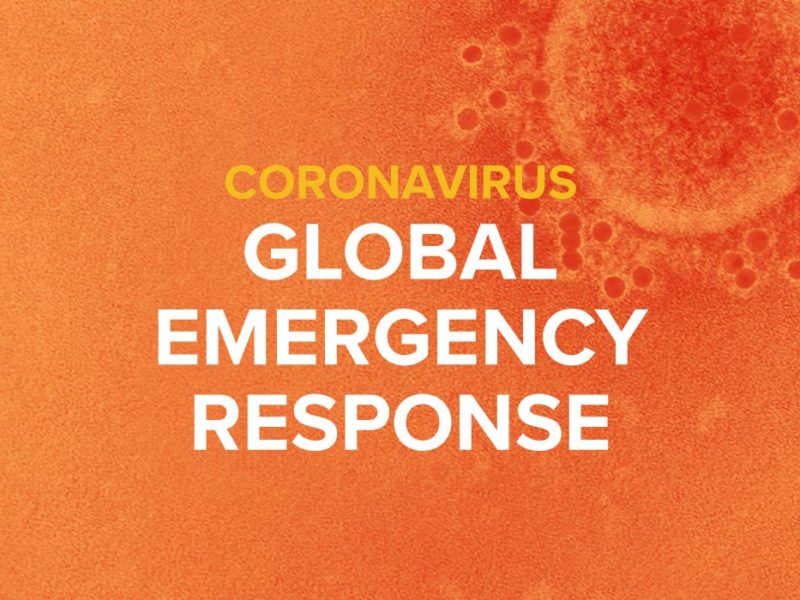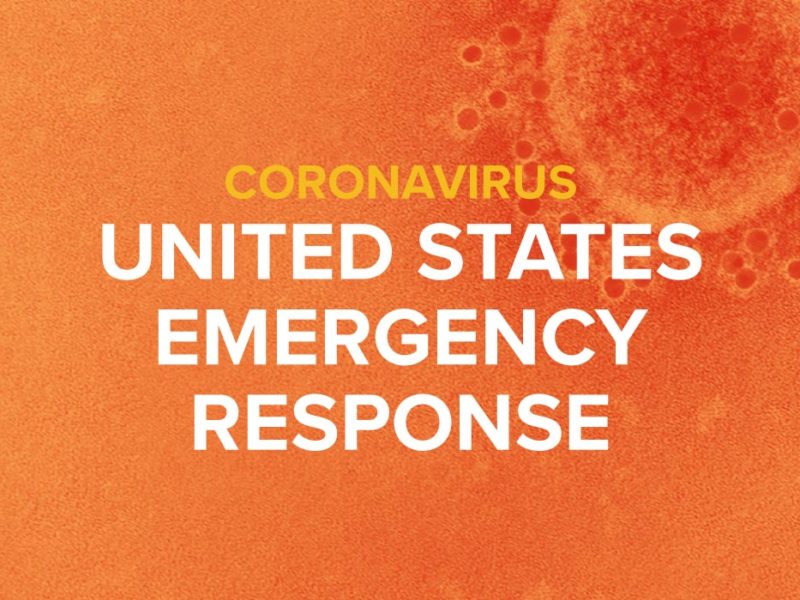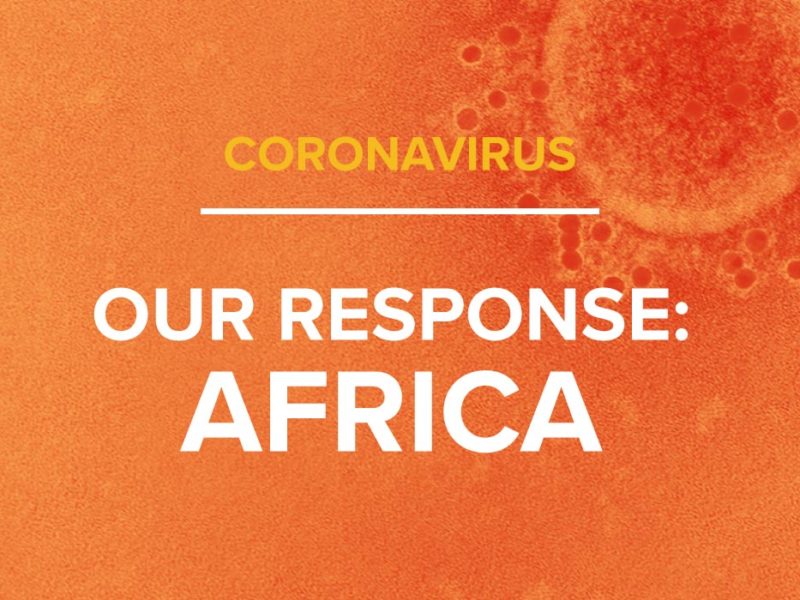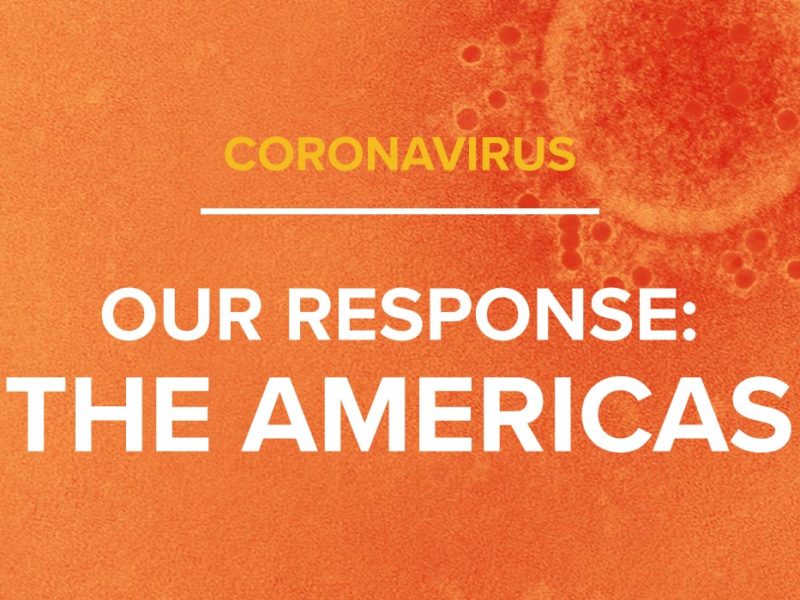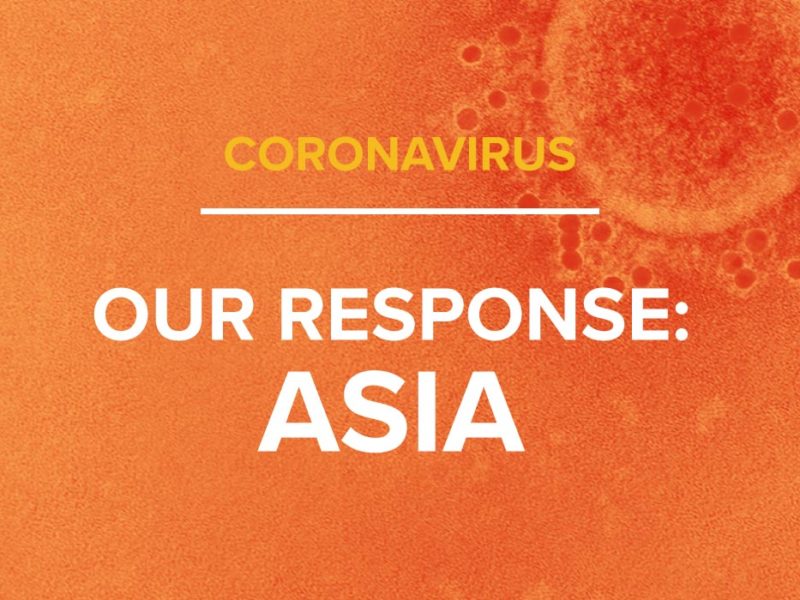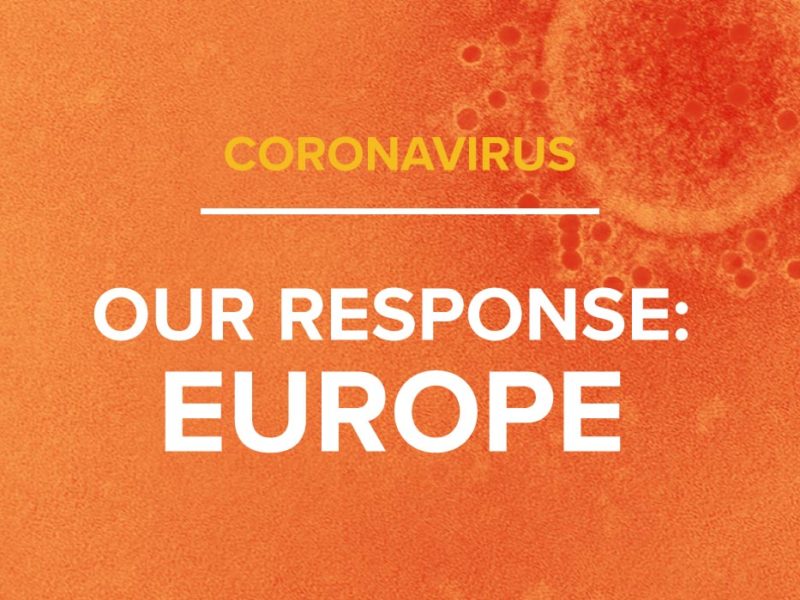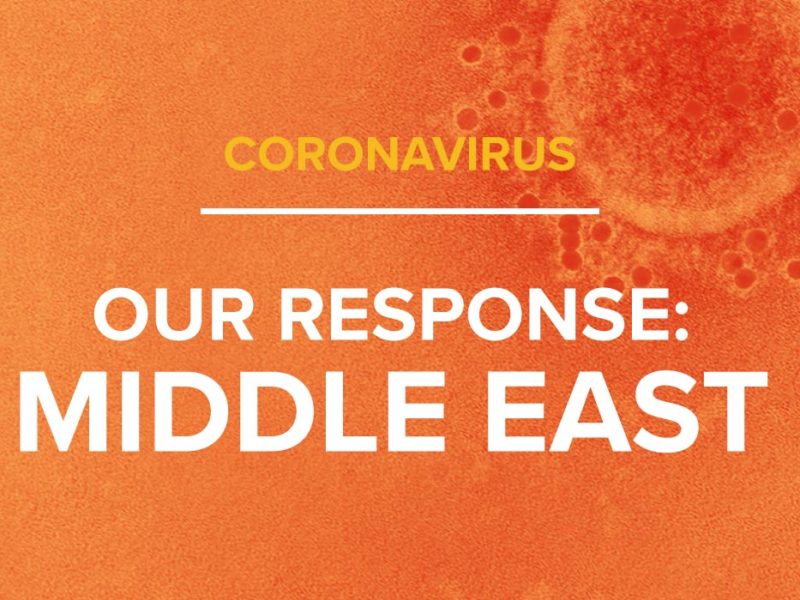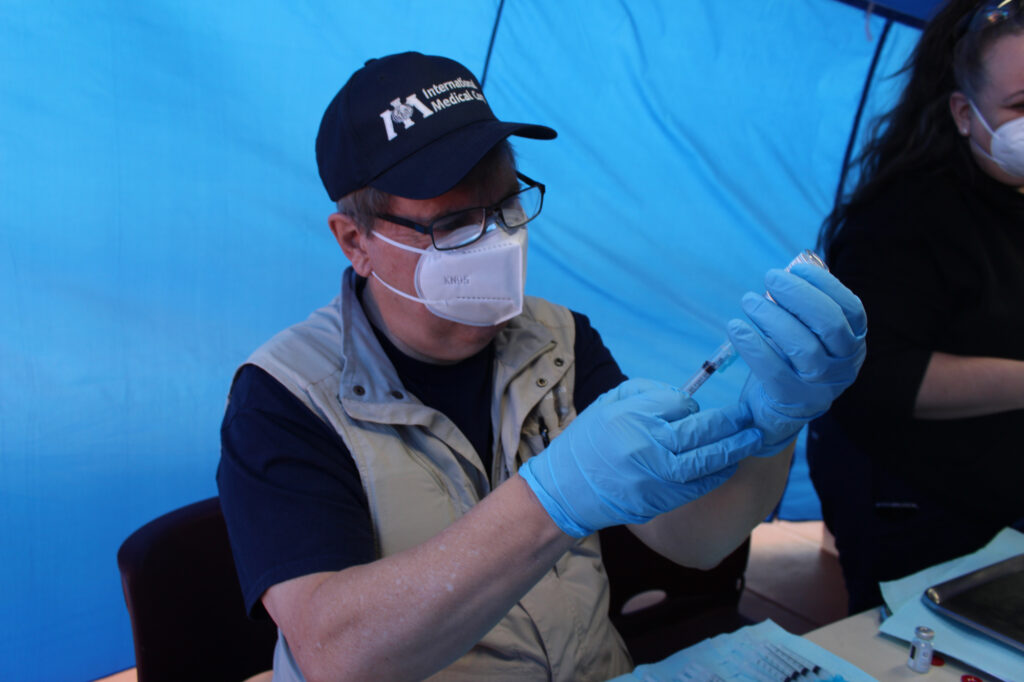
We Are Supporting
COVID-19 Vaccine Programs
With COVID-19 cases—including new variants that have recently emerged—continuing to spread across the globe, promising vaccines have been tested and approved for use, turning the attention of the medical community to a new mission: distributing billions of doses of COVID-19 vaccines as quickly and as safely as possible.
International Medical Corps is uniquely poised to contribute to this effort, having developed a national network of partners in the US through the course of our COVID-19 response. We also have strong relationships with ministries of health in the almost 30 countries where we operate, and are working with them on strategies around cold-chain management, ways to overcome “last mile” challenges in low-resource environments, and how to conduct COVID-19 vaccine information campaigns that are accurate and effective.
In addition, our experience operating immunization programs for measles, polio, Ebola and other infectious diseases in regions underserved by medical providers and in communities with endemic poverty bolsters our ability to contribute to one of the largest vaccination missions the world has seen. To find out more about how we’re already helping, check out the examples below.
COVID-19 Vaccine Facts
- A number of vaccines have already been authorized by international and national health authorities, with additional vaccines nearing completion of their clinical trials
- Vaccines based on mRNA technology require extreme refrigeration; other currently approved vaccines have cold-chain requirements similar to many other well-known and widely used vaccines
- Similar to other vaccines, COVID-19 vaccines require an incubation period before achieving maximum efficacy
- The WHO has partnered with other organization to establish COVAX, which will lead their global vaccination effort
- Vaccine recipients should continue to wear masks and practice social distancing until herd immunity has been achieved
Vaccination Efforts in the United States

One example of our efforts in the US can be found right here in our hometown of Los Angeles, where our volunteers and staff are working with Kedren Community Health Center—which serves at-risk communities in South LA—to vaccinate thousands of people each day. In addition to vaccinators, we have supplied Kedren with materials and shelters that more than doubled the square footage of its vaccine program, making it one of the country’s largest walk-in ambulatory vaccination sites.
We also are working with Martin Luther King, Jr. Community Hospital (MLKCH), which serves the same communities, to support its vaccination efforts by providing fully outfitted vans that MLKCH is using as mobile medical units. In addition, we are providing MLKCH with staffing support, cold-chain equipment, medical supplies (including PPE) and training.
In Florida, we are supporting vaccination efforts by PanCare, which runs federally qualified healthcare centers and serves low-income communities in the Panhandle region, by providing the cold-chain equipment so vital to storing and administering today’s mRNA vaccines.
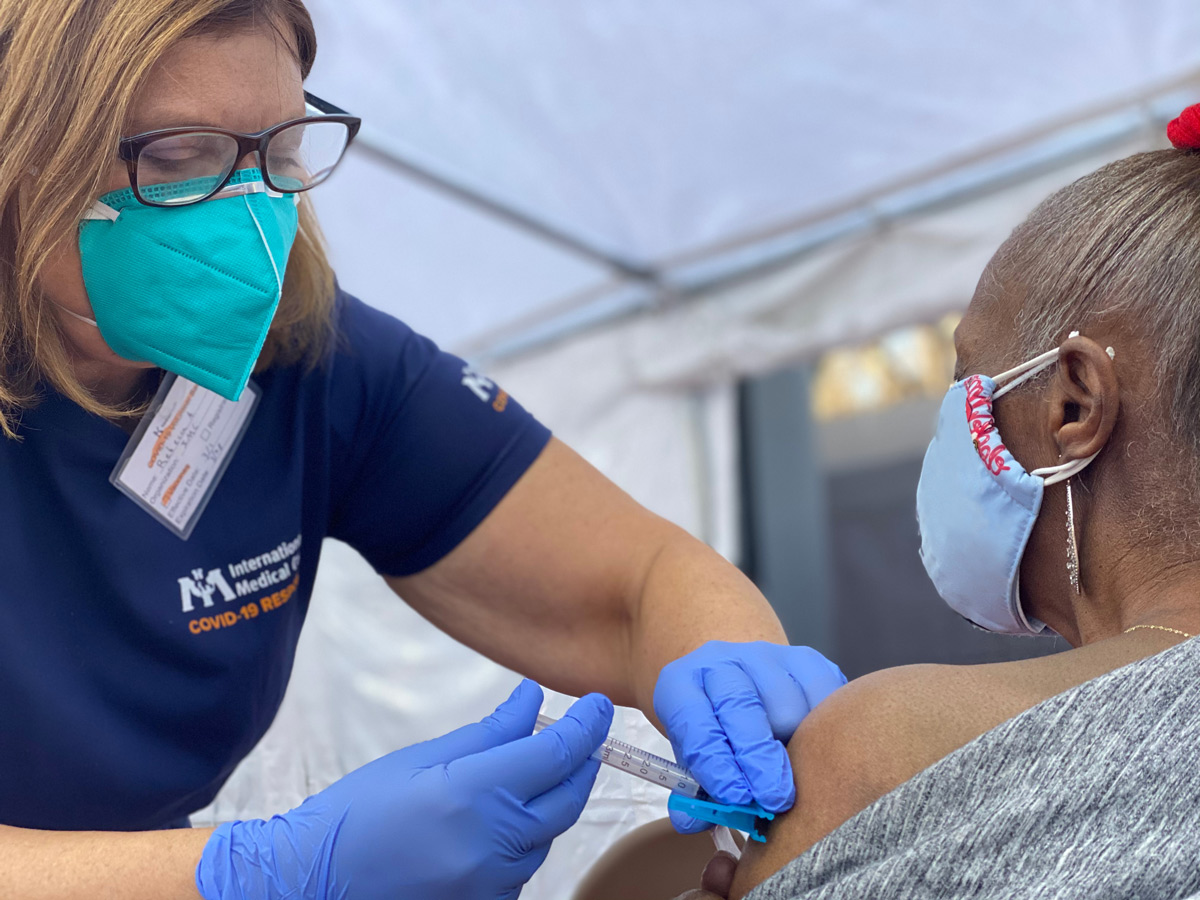
Vaccination Efforts Internationally

One example of our vaccine work internationally can be found in Jordan, where we are working closely with the Ministry of Health and playing a central role in every aspect of vaccination efforts now underway in Azraq and Zaatari refugee camps, including registration, medical pre-screening, transportation and administering vaccines. We also are raising awareness about the vaccines among the refugees in both camps, which number in the tens of thousands.
In addition to working with ministries of health in individual countries, we are offering assistance to COVAX—an international partnership that is supporting the research, development and manufacturing of a wide range of COVID-19 vaccines, and will distribute them to participating countries. Of the more than 180 countries included in the COVAX initiative, 92 are lower- or middle-income countries, including those that are experiencing conflict, humanitarian crises and acute outbreaks. Given International Medical Corps’ long history of dealing with infectious diseases in difficult and dangerous environments, we are confident that we’ll be able to help COVAX with its COVID-19 vaccination efforts in the coming months and years.
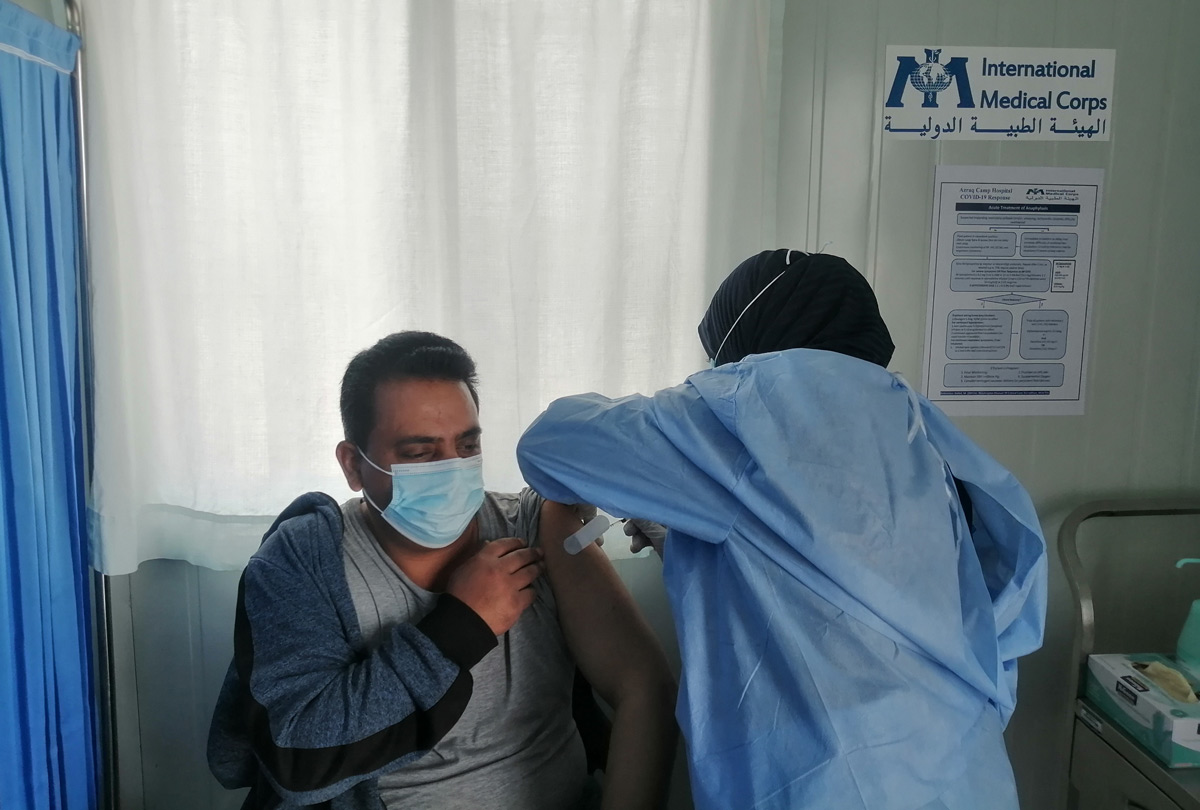
Challenges of Vaccination in Developing Countries

Mistrust, misinformation and lack of local infrastructure are some of our primary challenges in providing vaccines in conflict zones or poverty-stricken regions. We increase trust in the communities we serve by strengthening local systems, providing accurate information and training community residents in best practices around infection prevention and control. Not only are patients more likely to trust people from their own community, but the newly trained residents continue to be local healthcare resources long after our primary mission has ended.
The lack of local infrastructure is a serious challenge for all organizations planning COVID-19 vaccine programs. Many communities lack the cold-chain and refrigeration capabilities required to transport and store some of the currently available vaccines. They may also lack necessary sanitation and medical supplies, including personal protective equipment (PPE). We work with our partners to provide medical equipment and supplies, and to create or expand infrastructure to support COVID-19 vaccine campaigns. In addition, because lack of transportation or reliable roads can prevent patients from reaching vaccination clinics, we work with local partners to ensure that COVID-19 vaccines reach those who need them.
How You Can Help
In addition to getting vaccinated, continuing to practice social distancing and wearing masks to prevent the spread of COVID-19 in your hometown, you can support our work by making a donation.
Donate now